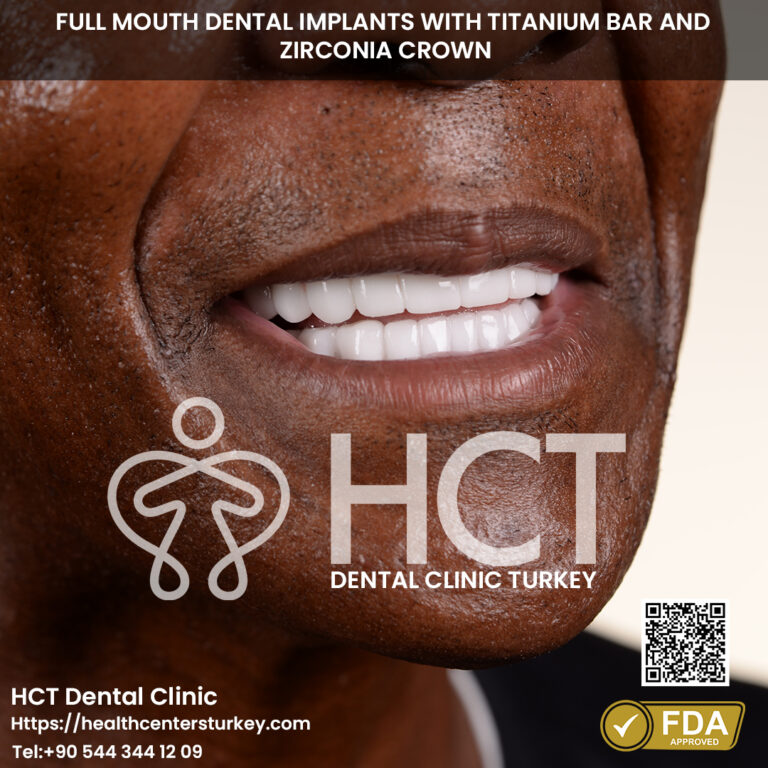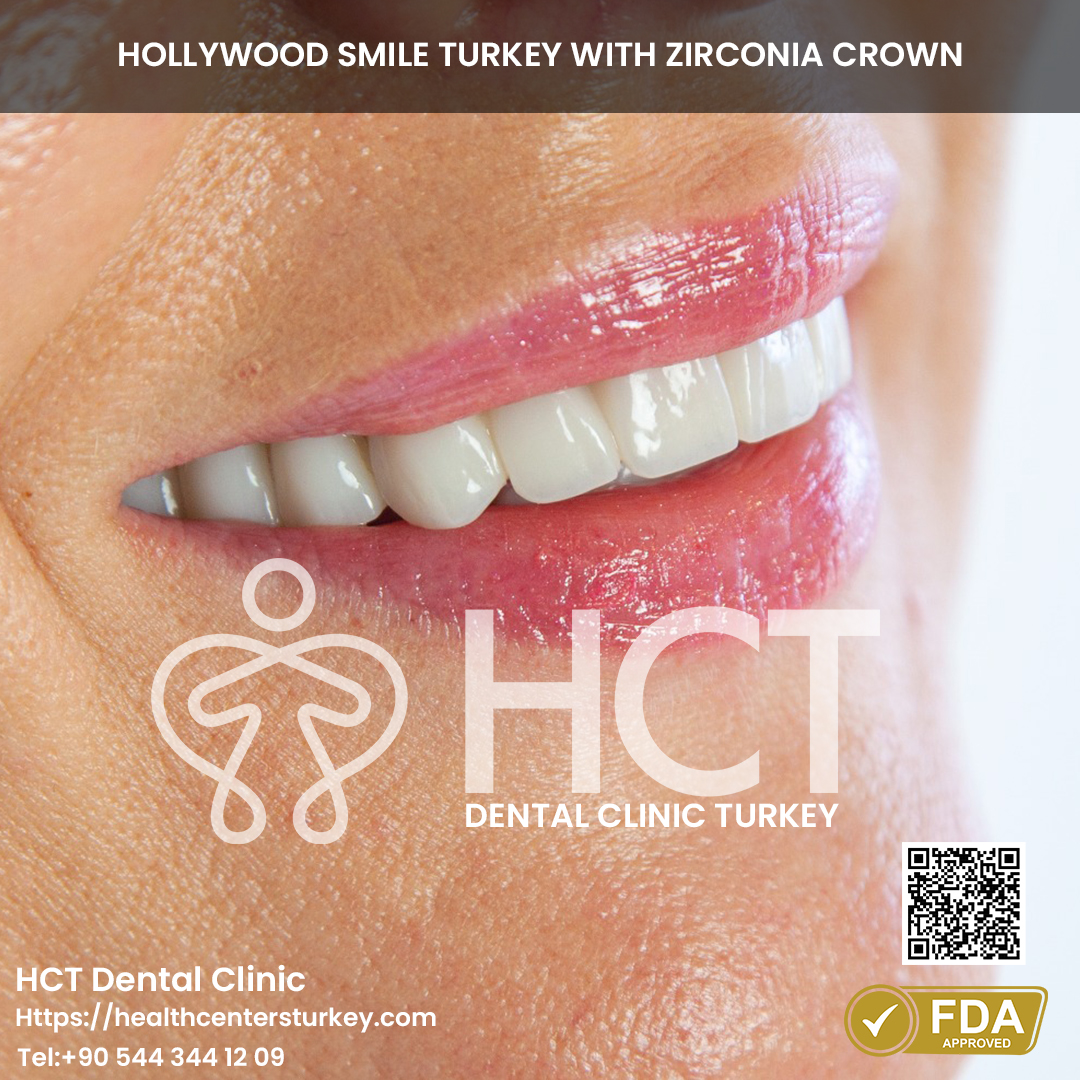Qualified Dentists Offering High-Quality Care in Antalya, Turkey
Qualified Dentists Offering High-Quality Care in Antalya, Turkey
Blog Article
Prioritize Your Oral Health with Affordable Options in Turkey
Dental implants have turn into a popular answer for these looking to replace missing teeth. Understanding how these implants can have an result on adjacent teeth is essential for anyone considering this procedure, as properly as for dentists and specialists involved in dental care.

One vital aspect is that dental implants are designed to be anchored into the jawbone, which implies they're independent of adjacent teeth. Unlike dental bridges, which regularly require the alteration of neighboring teeth, implants can fill the hole without compromising the health or structure of these surrounding teeth.
This independence helps keep the integrity of adjacent teeth. When a tooth is lost, there is normally a natural tendency for neighboring teeth to tilt or shift into the empty area. Such movement can result in misalignment, which may affect chew and overall oral health. By inserting an implant, you effectively prevent this potential shift, promoting higher alignment in the long term.
State-of-the-Art Oral Health Techniques for Every Patient
Additionally, dental implants help preserve bone density in the jaw. A natural tooth root supplies stimulation to the encompassing bone, keeping it wholesome and strong. When a tooth is missing, the bone can start to deteriorate because of lack of stimulation. With a dental implant mimicking a natural root, bone loss may be minimized, which indirectly advantages adjacent teeth by preserving the overall structure of the dental arch.
While dental implants are advantageous, improper placement can impression neighboring teeth. If an implant is positioned too close to a different tooth, it might exert undue stress on that tooth, leading to discomfort or potential harm. Proper planning and imaging techniques are important for avoiding such issues.
Transform One's Smile with Innovative Dental Solutions
Moreover, sustaining good oral hygiene is crucial after receiving an implant. If not correctly cleaned, surrounding teeth might turn into susceptible to dental points such as decay or gum disease. This underscores the significance of diligent oral care following the procedure to ensure each implants and adjacent teeth remain healthy.
Regular dental check-ups are additionally important for monitoring the health of surrounding teeth. Dentists can establish any shifts or potential problems early, allowing for timely interventions. This proactive approach ensures that each the implant and adjacent teeth can coexist without complications.
Get the Best Dental Treatments and Services in Affordable Rates in Turkey
Another consideration is the influence of implants on bite pressure. When a single tooth is missing, the load of chewing could shift to adjacent teeth, potentially leading to put on or strain. Implants restore proper chunk dynamics by redistributing forces in the mouth, which may defend surrounding teeth from undue stress.
Some patients might increase concerns concerning the appearance of dental implants. Well-placed implants can mix seamlessly with existing teeth, enhancing general aesthetics. In distinction, failing to replace a missing tooth can lead to aesthetic points, together with collapsing of facial structure and changes in smile dynamics.
It's also value discussing the psychological features of dental health. Experiencing tooth loss can adversely affect one’s self-esteem and willingness to interact socially. By restoring your smile with implants, you possibly can positively influence not only your oral health but in addition your read this post here emotional well-being.
Long-term success of dental implants usually hinges on varied factors, including the patient's health, maintenance habits, and the quality of the initial process. If adjacent teeth are wholesome and properly cared for, the likelihood is that they may proceed to thrive alongside the implants.
Complete Guide to Dental Implants and Cosmetic Treatments in Turkey
In conclusion, dental implants play a crucial function in not just restoring individual smiles, but in preserving the health and structure of adjacent teeth. By preventing shifting, sustaining bone density, and redistributing chew forces, implants can ensure that surrounding teeth remain in optimal condition. Proper placement, hygiene, and regular dental visits can further enhance the benefits of dental implants, leading to a healthier, more confident smile for years to return.
- Dental implants might help keep the alignment of adjacent teeth by offering a secure anchor, preventing adjacent teeth from shifting into the gap left by a missing tooth.
- The presence of an implant might stimulate bone progress in the jaw, helping to preserve the general structure and integrity of the adjacent teeth.
- Unlike conventional bridges, implants do not require alteration of surrounding teeth, thus preserving their power and anatomy.
- Implants can enhance the distribution of bite forces evenly across the dental arch, reducing the stress on neighboring teeth throughout chewing.
- A well-integrated dental implant can decrease the chance of bone loss within the space surrounding adjacent teeth, contributing to their long-term health and stability.
- The aesthetics of adjacent teeth could be improved due to the help offered by implants, which may lead to better total beauty outcomes.
- With correct placement, dental implants can prevent gum recession around adjacent teeth by maintaining adequate dental structure.
- Implants may help mitigate the risks of periodontal disease in close by teeth by selling healthy gum tissue and offering a washable floor.
- Long-term success of dental implants can result in improved oral hygiene routines, which in turn benefits the health of surrounding teeth.
- The improved practical ability of an implant can encourage sufferers to chew more effectively, thus rising saliva manufacturing and aiding in the protection of adjacent dental tissues.undefinedHow do dental implants affect adjacent teeth?
What are dental implants and the way do they interact with adjacent teeth?undefinedDental implants are artificial tooth roots which would possibly be surgically positioned into the jawbone. They provide a stable basis for replacement teeth while ensuring minimal disruption to adjacent teeth, preserving their integrity and alignment. Search for Your Perfect Dental Clinic in Turkey for Aesthetic Procedures.
Access World-Class Dental Services in Turkey
Can dental implants trigger problems for close by natural teeth?undefinedGenerally, dental implants don't harm adjacent natural teeth. However, if the implant just isn't positioned correctly or if there’s insufficient oral hygiene, it could lead to complications corresponding to adjacent tooth decay or gum disease.

Will getting a dental implant change the way my adjacent teeth feel?undefinedMost patients report no change in the sensation of adjacent teeth after implant placement. However, it may take some time to adjust to the presence of the implant, much like how one could adapt to different dental restorations.
Can dental implants assist protect the health of adjacent teeth?undefinedYes, dental implants might help keep the health of adjacent teeth by preventing bone loss that can occur after tooth loss. This preservation helps the alignment of close by teeth, decreasing the danger of shifting or misalignment.
Uncover Leading Dental Treatments in Turkey for Implants, Veneers, and More
Do I want to switch adjacent teeth when getting an implant?undefinedTypically, adjacent teeth do not need alteration when placing an implant. This is one of the benefits of dental implants over traditional bridges, which often require reshaping adjacent teeth for support.
How does the therapeutic strategy of an implant affect nearby teeth?undefinedThe healing process entails osseointegration, the place the implant fuses with the jawbone. During this time, adjacent teeth remain unaffected and retain their function, although it’s important to observe read post-operative care recommendations. Enhance Your Dental Treatment with Skilled Professionals in Turkey.
Uncover Cost-Effective Dental Treatments in Turkey
Can dental implants result in bone loss round adjacent teeth?undefinedIf dental implants are placed correctly and cared for adequately, they want to not lead to bone loss round adjacent teeth. In reality, they can help stimulate bone development, combating the natural bone loss that always follows tooth extraction.
What precautions should I take to guard adjacent teeth after getting an implant?undefinedRoutine dental hygiene, including brushing and flossing, along with common dental check-ups, is crucial. Avoiding onerous foods and following your dentist’s aftercare instructions may even shield each the implant and adjacent teeth.
Is it widespread for adjacent teeth to shift after an implant is placed?undefinedIt's not typical for adjacent teeth to shift after an implant placement, especially when the implant is positioned correctly and maintained correctly. If there’s any movement, it could be because of different underlying issues that should be evaluated by a dental professional. Report this page